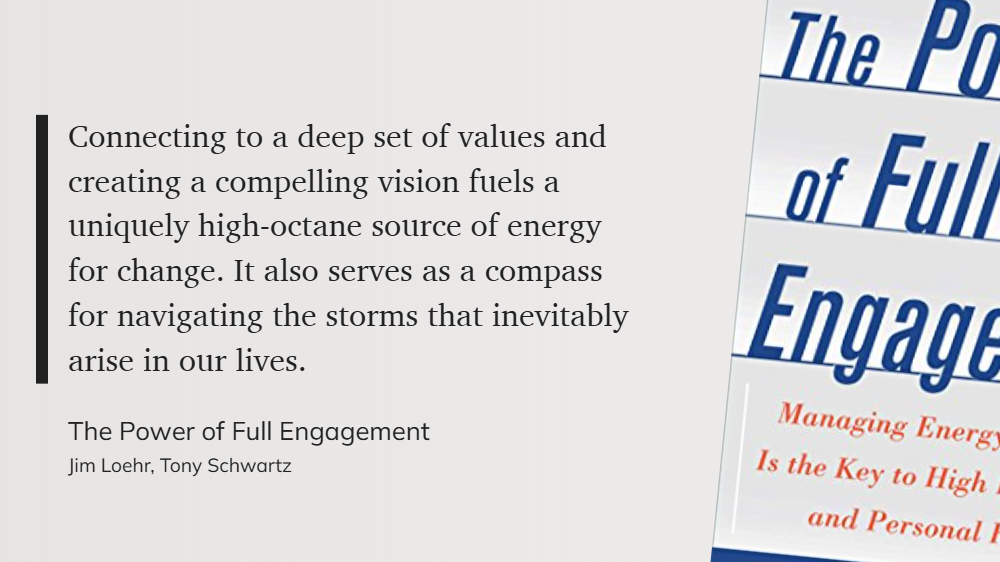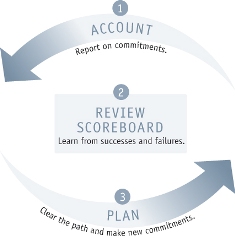In Change Your Mind. Create New Results training, we learn that the average person has 60,000 to 70,000 thoughts a day. Remarkably, 90–95% of them are the same thoughts as yesterday.
That means most people live each day from the past. And because we’re conditioned by habit, we often predict and live into the same future. We spend only 5–10% of our time in the present moment — the only place true change can occur.
Living in the past or a predictable future is a recipe for stress.
Why Stress Dominates Our Thinking
Psychology shows nearly 70% of our thoughts and emotions are negative. This constant stress response floods the body with chemicals that were once useful for survival — but now leave us mentally and emotionally stuck.
When we're stressed, we become self-focused and reactive:
- Narrow-minded and defensive
- Caught in fear, anger, or pain
- Disconnected from others and our purpose
Stress-related emotions like anxiety, frustration, guilt, shame, jealousy, and control distort our perception and drain our energy. These are not normal states of consciousness — they are altered states created by a dysregulated nervous system.
Physiologically, stress prepares us to run, fight, or hide. It redirects blood flow from our vital organs to our limbs, speeds up heart rate and breathing, and shuts down digestion. And most of us are living in this state — 70% of the time.
Real Change Happens Only in the Present
You can’t create a new future while operating from the past.
The present moment is the only place we can access creativity, vision, and transformation. It’s where leaders emerge — not just to react, but to shape the future.
Director Steven Spielberg once said, “The toughest thing for a director is to know what he wants. It’s not how to get it — it’s knowing what he wants.” The same is true for CEOs.
Your primary responsibility as a leader is to know what you want — and to create a compelling vision for yourself and your team.
Culture > Strategy
Peter Drucker famously said, “Culture eats strategy for breakfast.” Why? Because no strategy will succeed in an environment of mistrust, low energy, and poor collaboration.
Yet most companies fail to recognize how stress erodes their culture, clarity, and accountability. Over time, stress becomes normalized, and performance suffers.
 A Harvard Business Review study revealed that 58% of employees trust strangers more than their own boss. That’s not a strategy problem. That’s a culture problem.
A Harvard Business Review study revealed that 58% of employees trust strangers more than their own boss. That’s not a strategy problem. That’s a culture problem.
Control Your Future
If your team is stuck in a loop of reactivity, low morale, or blame, it’s time to do the real work.
Learning to manage emotional states is not a soft skill — it's a strategic advantage. It starts with self-awareness and extends to leadership, vision, and culture.
In Change Your Mind. Create New Results, we teach one core truth:
If you don’t have a vision of your future, you will always return to your past.
Call to Action
If your organization is ready to move beyond burnout, reactivity, and fragmentation, start here:
- Reclaim the present moment.
- Align around a shared vision.
- Equip your leaders to manage emotional states as a strategic priority.
That’s how you create a culture that outperforms — and a future worth working toward.
Let’s talk. Contact Positioning Systems to schedule a free exploratory meeting
Growth demands Strategic Discipline.
In "Breaking the Habit of Being Yourself: How to Lose Your Mind and Create a New One, Dr. Joe Dispenza reveals a powerful turning point in his life—the moment he chose to stop living as the person the world expected him to be and start becoming who he truly is. At the peak of his fame following What the Bleep Do We Know!?, he stepped away for six months to confront the gap between his public image and his authentic self.
 In the next blog, we’ll explore that same gap many of us face—the space between the version of ourselves we project and the person we’re meant to become—and how closing it can lead to real transformation
In the next blog, we’ll explore that same gap many of us face—the space between the version of ourselves we project and the person we’re meant to become—and how closing it can lead to real transformation
 Building an enduring great organization requires disciplined people, disciplined thought, disciplined action, superior results, producing a distinctive impact on the world.
Building an enduring great organization requires disciplined people, disciplined thought, disciplined action, superior results, producing a distinctive impact on the world.
Discipline sustains momentum over a long period of time, laying the foundations for lasting endurance.
A winning habit begins with Three Strategic Disciplines: Priority, Metrics, and Meeting Rhythms. Forecasting, accountability, individual, and team performance improve dramatically.
Meeting Rhythms achieve a disciplined focus on performance metrics to drive growth.
Let Positioning Systems help your business achieve these outcomes on the four most Important Decisions your business faces:
|
DECISION |
RESULT/OUTCOME |
|
PEOPLE |
|
|
STRATEGY |
|
|
EXECUTION |
|
|
CASH |
|
Positioning Systems helps mid-sized ($5M - $500M+) businesses Scale-UP. We align your business to focus on Your One Thing! Contact dwick@positioningsystems.com to Scale Up your business! Take our Four Decisions Needs Assessment to discover how your business measures against other Scaled Up companies. We’ll contact you.
NEXT BLOG – The GAP 






.jpeg?width=150&height=135&name=Hand%20with%20marker%20writing%20the%20question%20Whats%20Next_%20(1).jpeg)

